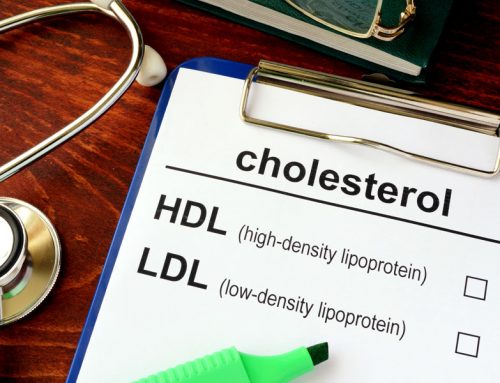
Re-admissions of chronic heart failure patients to the hospital cause stress and cost money.
Everyone is interested in being able to send heart failure patients home from the hospital … and … in not having to re-admit them to the hospital. That is what the cardiologists want, … that is what the hospital administrators want, … and that is certainly what the patients themselves want.
Q10 can reduce the number of hospital re-admissions
What does the evidence from well-designed randomized double-blind placebo-controlled studies say? Can a daily Coenzyme Q10 supplement – taken in addition to the other prescription medications for heart failure patients – make a difference in the probability of a heart failure patient’s having to be readmitted to the hospital?
Q10 and congestive heart failure
Remember. We have defined chronic heart failure as the inability of the heart to pump blood as strongly as it should be able to pump with the result that not enough oxygen and nutrients are pumped out to the rest of the body. In severe cases, the lessened ability of the heart to pump normally results in the body’s retaining fluid in the patient’s arms and legs and feet and lungs and other organs. When this happens, the term congestive heart failure is often used because the body is becoming congested with fluid.
Remember too that the New York Heart Association has developed a four-tier classification scheme for describing the severity of heart failure with Class I being the mildest form, Class II being the moderate form, and Classes III and IV being the severe forms of heart failure.
The Q-symbio study (2014)
What did the Q-symbio study that was published in late 2014 in the peer-reviewed Journal of the American College of Cardiology tell us about Q10 supplementation and hospitalizations? The study enrolled 420 heart failure patients in a Q10 treatment group (n = 202) and in a placebo group (n = 218). The patients were both men and women, with a male-female ratio of about three-to-one. The patients were 62 years old plus or minus 12 years. All of the patients enrolled in the study were already classified as NYHA functional class III or IV (1).
100 mg of Q10 three times a day
The result of supplementation three times a day with 100 mg of a well-absorbed lipid-based Q10 preparation was that there were significantly fewer hospital admissions of the patients in the Q10 treatment group than in the placebo group (17 versus 31).
Moreover, the patients in the Q10 group in the Q-symbio study, were also seen, after the breaking of the code and the compiling of the data, to have had significantly fewer major adverse cardiovascular events (30 versus 57), fewer cardiovascular deaths (18 versus 34), and, important to mention, I think, fewer all-cause deaths (21 versus 39).
Conclusion from Q-symbio Study for Cardiologists and Hospital Administrators
If you want to send your heart failure patients home and not have them brought back to the hospital, then an adjuvant treatment with Coenzyme Q10 needs to be considered for those patients. Yes, they do have many other medications that they are taking. But, as Dr. Mortensen, lead author on the Q-symbio journal article, has pointed out, Coenzyme Q10 is unique in that it is working with the heart muscle cells to overcome the complications of mitochondrial dysfunction and energy starvation.
An earlier long-term multicenter randomized Q10 study in Italy
Digging into the archives, I find that there was year-long multi-center randomized placebo-controlled study done in Italy and reported in 1993 (3). This study, with Dr. Morisco as the lead researcher, enrolled 641 congestive heart failure patients with an average age of 67 years. All patients were in NYHA functional classes III and IV. They were in bad shape.
The Italian researchers assigned 319 patients to a Q10 treatment group – these patients were given 2 milligrams of Q10 per kilogram of body weight, so, no doubt, most of the patients were getting 100 – 150 milligrams of Q10 daily.
Fewer re-admissions to the hospital with Q10 treatment
Now, then, what was the result of that Q10 supplementation for the congestive heart failure patients? Yes! There was a significantly lower number of re-admissions to the hospital in the Q10 treatment group than in the placebo group.
Fewer cases of pulmonary edema and cardiac asthma with Q10 treatment
Furthermore, there were significantly fewer instances of pulmonary edema – remember, these were patients with congestive heart failure – and significantly fewer instances of cardiac asthma in the Q10 treatment group.
The KiSel-10 study: supplementing with Q10 and selenium in Sweden
Hospitalizations were not the central focus of the five-year randomized double-blind placebo-controlled study conducted in central Sweden and reported in 2013 in the International Journal of Cardiology, but the design of the study and the outcomes of the study deserve further mention here (2).
The Swedish researchers had noticed that heart disease patients often have unusually low amounts of selenium and Coenzyme Q10 in their heart muscle cells, and they thought that both substances might be not only vital in the heart but might also have an interrelationship between them that is important for optimal function of the heart muscle cells.
They enrolled 443 elderly healthy Swedish adults, men and women, between the ages of 70 and 88 and assigned them to a combination Coenzyme Q10-selenium treatment group and to a placebo control group.
Fewer cardiovascular deaths with Q10 and selenium treatment
The result? Significantly fewer participants in the Q10-selenium treatment group suffered cardiovascular deaths than did the participants in the placebo group. Moreover, echocardiograms showed significantly better cardiac function in the Q10-selenium treatment group than in the placebo group.
Conclusion from Q10 research studies
Long-term supplementation with Coenzyme Q10 dissolved in vegetable oil and protected against the light in soft gelatin capsules and with organic selenium yeast tablets reduces the risk of death from heart disease. It is reasonable to suppose that long-term supplementation with Coenzyme Q10 and selenium will reduce the number of heart failure patients needing re-admission to the hospital.
Sources:
- Mortensen, S. A., Rosenfeldt, F., Kumar, A., Dolliner, P., Filipiak, K. J., Pella, D., & … Littarru, G. P. (2014). The effect of coenzyme Q10 on morbidity and mortality in chronic heart failure: results from Q-SYMBIO: a randomized double-blind trial. JACC. Heart Failure, 2(6), 641-649. doi:10.1016/j.jchf.2014.06.008
- Alehagen U, et al. Cardiovascular mortality and N-terminal-proBNP reduced after combined selenium and coenzyme Q10 supplementation. Int J Cardiol. 2013;167(5):1860-6.
- Morisco, C., Trimarco, B., & Condorelli, M. (1993). Effect of coenzyme Q10 therapy in patients with congestive heart failure: a long-term multicenter randomized study. The Clinical Investigator, 71(8 Suppl), S134-S136.









Leave A Comment